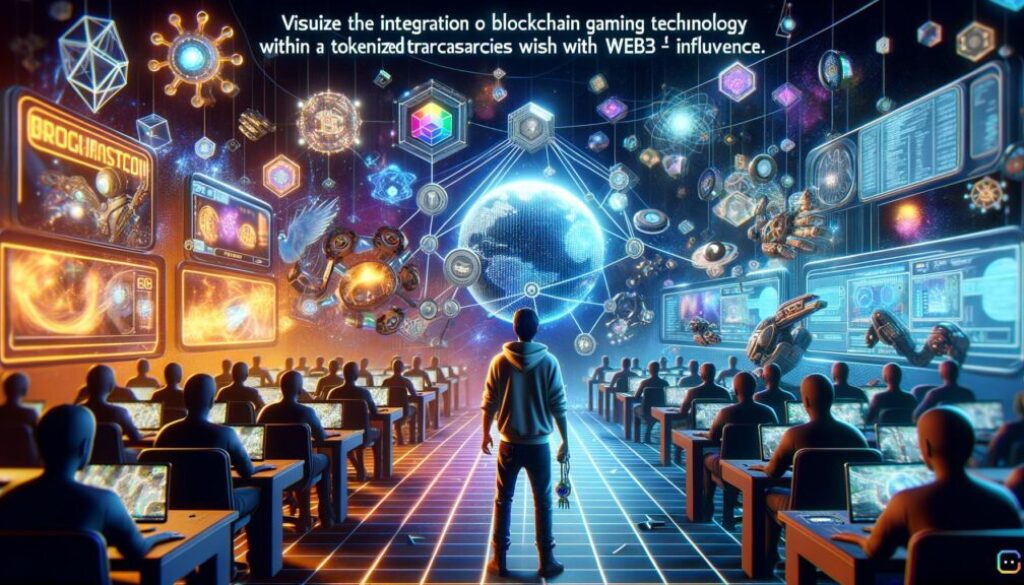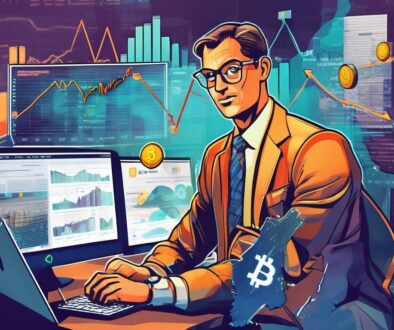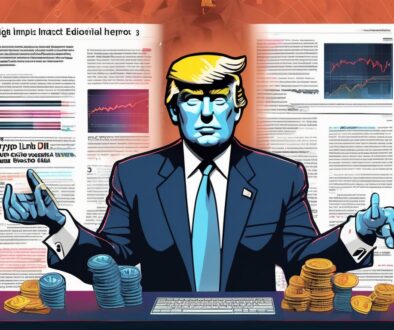The Crucial Role of Blockchain in AI-Driven Gaming

In the rapidly evolving world of gaming, the integration of cutting-edge technologies is constantly reshaping player experiences. While some might question the necessity of blockchain in gaming, particularly for casual gameplay, its significance becomes undeniable when paired with the transformative power of Artificial Intelligence (AI). The emergence of AI has fundamentally altered the landscape, making blockchain an indispensable tool for ensuring consistent, immersive, and truly player-owned gaming experiences.
Unlike traditional gaming setups that rely on centralized servers and raw processing power, the future of AI-driven games hinges on blockchain to forge interconnected social ecosystems. This powerful synergy not only allows for achievements and progress to be seamlessly recorded and carried across various titles, but it also elevates AI’s memory capabilities, granting users unprecedented ownership over their in-game creations. This shift extends to non-fungible tokens (NFTs), empowering players to retain, trade, and even transfer valuable assets across different games and platforms. Ultimately, the fusion of blockchain and AI in gaming is not just about fostering creativity and richer social interactions; it’s about unlocking entirely new monetization avenues for both players and developers.
Blockchain: Unlocking True Ownership in Gaming
One of the most profound impacts of blockchain technology in gaming is its ability to facilitate true ownership of in-game assets through Non-Fungible Tokens (NFTs). In the traditional gaming model, items you ‘own’ are often merely licenses to use within a specific game, controlled by the game developer. If the game shuts down, your digital treasures vanish. Blockchain changes this paradigm entirely:
- True Digital Ownership: Through NFTs, players gain verifiable ownership of unique in-game items, characters, skins, or even virtual land. These assets are recorded on a blockchain, proving your ownership independently of the game developer.
- Interoperability: This is the game-changer. Blockchain enables the seamless transfer of digital assets between different games and platforms. Imagine earning a rare sword in one RPG and being able to use it, display it, or trade it in a completely different game.
- Cross-Chain Integration: Further breaking down barriers, cross-chain solutions allow assets to move across diverse blockchain networks. Platforms like Polygon are at the forefront of facilitating these transactions, creating a more unified and flexible digital economy.
This new paradigm fosters a unified digital ecosystem where players are no longer confined to a single game’s boundaries. It empowers them with control over their digital possessions, opening up new possibilities for how they interact with and value their gaming experiences.
AI’s Transformative Impact: Smarter Games, Player Ownership
Artificial Intelligence plays a pivotal role in enhancing gaming experiences, and its capabilities are significantly amplified when integrated with blockchain. This combination allows for a level of dynamism and player empowerment previously unimaginable:
- Enhanced AI Memory and Player Creation Ownership: Blockchain acts as an extended memory for AI, meticulously recording in-game content, player actions, and achievements. This robust record-keeping allows AI to recognize and validate player-created content, thereby enabling users to genuinely own their unique in-game creations, whether it’s a custom weapon or a meticulously built virtual home.
- Autonomous AI Agents: AI agents built on blockchain can operate autonomously, interacting with on-chain data and making decisions with minimal human intervention. These intelligent agents can manage aspects of the game world, create dynamic challenges, or even act as personalized companions, enriching the gameplay experience.
- Personalized Gaming Experiences: AI agents can adapt to individual player behavior, preferences, and skill levels, creating a uniquely tailored and immersive environment for each user. This personalization can range from dynamically adjusting game difficulty to offering custom quests and narratives.
The ability to automate game creation, manage in-game activity, and personalize interactions through AI agents, all secured and enhanced by blockchain, stands to revolutionize how players and developers engage with virtual worlds.
Building Connected Worlds and New Economies
The synergy between AI and blockchain extends beyond individual player experiences, fundamentally transforming the social fabric and economic models within gaming. This integration is fostering truly interconnected social ecosystems:
- Seamless Social Environments: Imagine a world where your achievements and progress aren’t confined to a single game but are recognized and carried across an entire network of titles. Blockchain enables this, turning individual games into components of a larger, connected social environment where your reputation and assets have persistent value.
- Decentralized Collaboration: This convergence transcends traditional gaming structures, creating decentralized ecosystems where players, creators, and developers can seamlessly collaborate. Community-driven development, shared intellectual property, and collective decision-making become more feasible and transparent.
- New Monetization Avenues: For both players and developers, this integration unlocks unprecedented opportunities for revenue generation:
- For Players: The rise of ‘play-to-earn’ models allows players to earn real-world value from their in-game activities, whether through trading NFTs, participating in game economies, or contributing to game development.
- For Developers: Innovative monetization strategies emerge, moving beyond traditional sales and microtransactions. This includes royalty payments on NFT resales, decentralized funding models, and community-driven content creation that can generate shared revenue.
By integrating decentralized finance (DeFi) principles and the power of NFTs, blockchain gaming is not just about entertainment; it’s about building vibrant, self-sustaining digital economies where everyone can participate and benefit.
The Future is Interconnected and Player-Centric
The symbiotic relationship between blockchain and AI is not merely a trend; it’s the foundational shift for the next generation of gaming. Blockchain provides the bedrock of trust, ownership, and interoperability, ensuring that players truly own their digital assets and that their progress transcends game boundaries. AI, in turn, breathes intelligence and dynamism into these worlds, personalizing experiences, enabling autonomous agents, and fostering unprecedented creativity.
Together, these technologies are paving the way for a gaming future that is more immersive, equitable, and player-centric. As games evolve into complex, interconnected social ecosystems with thriving digital economies, the crucial role of blockchain in AI-driven gaming will only continue to grow, promising an exciting new era for gamers and creators alike.


